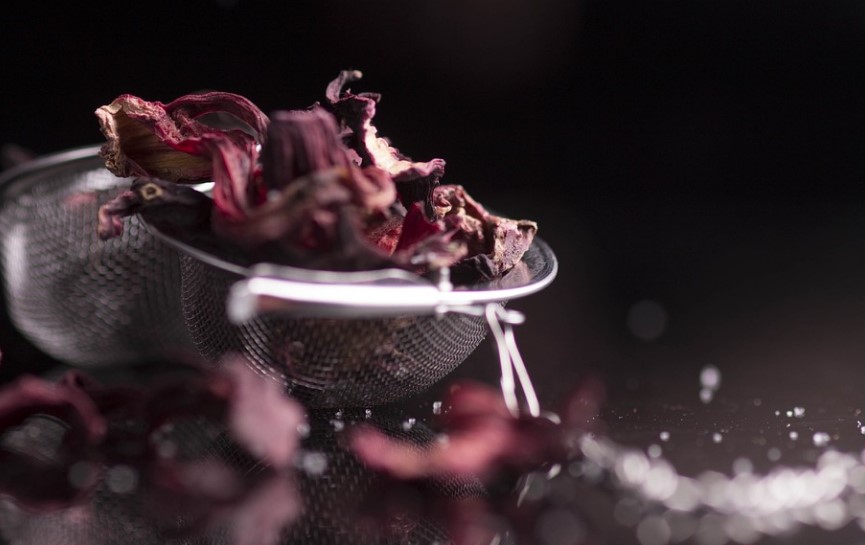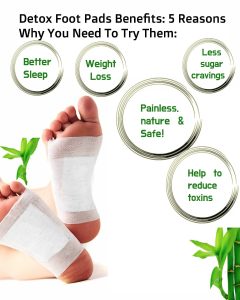
Last Updated on November 13, 2023 by Edible Alchemy Foods
As a health-conscious tea drinker, you may have heard of the FODMAP diet. The FODMAP diet is a type of elimination diet designed to help people with irritable bowel syndrome (IBS) identify and avoid foods that can trigger their symptoms. One question that often arises for those following a Low FODMAP diet is whether hibiscus tea is low FODMAP or not. In this article, we will explore the answer to this question in detail and help you understand the relationship between hibiscus tea and FODMAPs.
What is a Low FODMAP Diet?
First, let’s discuss what a Low FODMAP diet is. FODMAP stands for fermentable oligosaccharides, disaccharides, monosaccharides, and polyols. These are short-chain carbohydrates that are not well absorbed in the small intestine and can be fermented by gut bacteria. For people with IBS, these FODMAPs can cause symptoms such as bloating, gas, abdominal pain, and diarrhea.
A Low FODMAP diet involves avoiding foods high in FODMAPs for a period of time and then slowly reintroducing them to identify which foods are triggers for symptoms. The goal is to find a balance between avoiding triggering foods while still having a varied and nutritious diet.
What is Hibiscus Tea?
Hibiscus tea is an herbal tea made from the dried petals of the hibiscus plant. It is known for its tart and tangy flavor and is often consumed hot or cold. Hibiscus tea is a popular beverage in many cultures and is said to have numerous health benefits, including lowering blood pressure and improving liver function.
Is Hibiscus Tea Low FODMAP?
The question of whether hibiscus tea is low FODMAP is a bit tricky to answer. The answer depends on who you ask and which study you refer to. The good news is that there have been studies on the FODMAP content of hibiscus tea.
One study conducted by Monash University found that hibiscus tea is low FODMAP in a serving size of 1 cup (250ml). This is good news for those who love hibiscus tea and want to include it in their Low FODMAP diet. However, it’s important to note that the study was conducted on a specific brand of hibiscus tea, and other brands may have different FODMAP levels.
On the other hand, Hibiscus tea remains untested and advises treating it as high FODMAP. This is because hibiscus itself is considered high FODMAP due to its fructans content. Fructans are a type of oligosaccharide that can cause digestive issues for those with IBS.
So, which answer is correct? It’s hard to say definitively. The Monash University study provides some evidence that hibiscus tea may be low FODMAP, but it’s important to be cautious and pay attention to your own body’s response when consuming hibiscus tea.
Read: Is Rooibos Tea And Hibiscus The Same?
What to Look for When Buying Hibiscus Tea
When it comes to finding the perfect cup of hibiscus tea, it’s important to know what to look for. With its vibrant color, refreshing taste, and potential health benefits, hibiscus tea has gained popularity among tea enthusiasts. Whether you’re a seasoned tea drinker or just beginning to explore the world of herbal teas, understanding the key factors to consider when purchasing hibiscus tea will ensure you make an informed choice. In this comprehensive guide, we will walk you through the essential elements to look for when buying hibiscus tea, helping you make the best decision for your taste buds and well-being.
1. Quality Ingredients
The first and most crucial aspect to consider when purchasing hibiscus tea is the quality of its ingredients. Look for teas made from 100% pure hibiscus flowers, preferably organic. This ensures that you’re getting a product free from pesticides and other harmful chemicals. Premium hibiscus tea will have vibrant, deep-colored petals, indicating freshness and high-quality sourcing. Avoid teas that contain additives, fillers, or artificial flavors, as these can diminish the natural goodness of the tea.
2. Sourcing and Production Methods
The origin and production methods of hibiscus tea can significantly impact its flavor and overall quality. Seek out brands that source their hibiscus flowers from reputable suppliers, preferably those that follow sustainable farming practices. Ethically sourced hibiscus flowers contribute to a better taste experience and support environmentally friendly practices. Additionally, consider teas that undergo careful processing and preservation methods to retain the natural flavors and beneficial properties of the hibiscus flower.
3. Flavor Profile
One of the most exciting aspects of hibiscus tea is its vibrant and tangy flavor profile. When choosing hibiscus tea, pay attention to its taste characteristics. A high-quality hibiscus tea will offer a well-balanced combination of tartness and sweetness. The flavor should be robust, with distinct floral notes and a pleasant aftertaste. Consider trying different brands or blends to discover your preferred flavor profile, whether you enjoy a more citrusy or floral taste.
4. Packaging
Packaging plays a crucial role in maintaining the freshness and quality of hibiscus tea. Look for teas that come in airtight, light-resistant containers to protect the tea from exposure to air, moisture, and sunlight. This helps preserve the natural flavors and nutrients of the hibiscus flowers. Additionally, consider brands that use eco-friendly packaging materials, such as recyclable or biodegradable options, to minimize environmental impact.
5. Reputation and Reviews
When purchasing hibiscus tea, it’s helpful to research and consider the reputation and reviews of the brand or specific product. Look for established tea companies or reputable retailers known for their commitment to quality. Online reviews from customers can provide valuable insights into the flavor, aroma, and overall satisfaction with a particular hibiscus tea. Pay attention to feedback regarding freshness, flavor accuracy, and the overall tea-drinking experience.
Also, read:
6. Health Benefits
Hibiscus tea is not only a delightful beverage but also offers potential health benefits. Rich in antioxidants, hibiscus tea is believed to support heart health, aid digestion, and promote overall well-being. When buying hibiscus tea, choose brands that prioritize preserving the natural properties of the hibiscus flower to ensure you’re getting the full potential of its health benefits. Consult with your healthcare provider to understand how hibiscus tea fits into your specific health goals or if you have any existing medical conditions.










